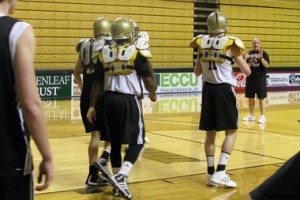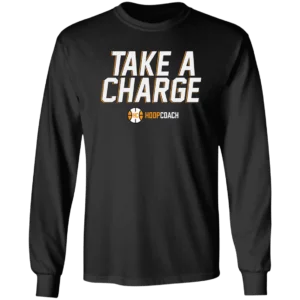 Yesterday I watched Coach Tom Izzo’s Michigan St. Spartans practice and even though they were basically reviewing all their offense and defense in preparation for an exhibition game against Northern Michigan, the program’s hallmark of toughness was still very evident.
Yesterday I watched Coach Tom Izzo’s Michigan St. Spartans practice and even though they were basically reviewing all their offense and defense in preparation for an exhibition game against Northern Michigan, the program’s hallmark of toughness was still very evident.
In retrospect, if you had told me 20 years ago, after serving a 12 year apprenticeship under Coach Jud Heathcote, that Coach Izzo was embarking on a head coaching stint at MSU where he would surpass the success of his mentor, I would have called you sacrilegious. But, the truth is-that’s exactly what happened. You can look it up.
After all, Coach Heathcote was a tough act to follow. He led the Spartans to a national championship himself in 1979 over Indiana St. in the famous Magic Johnson/Larry Bird game. He coached the 2-3 zone as well as it has ever been coached, had numerous plays and sets and he never ran out of good offense. Besides that he was a coach’s coach, an authentic person and he stood for many good things both in and outside coaching-not to mention that he had the rare distinction of being able to coach up average players as well give stars like Magic, Scott Skiles and Steve Smith the freedom and space to do their things.
If you ask me how that happened, I would simply say that Coach Izzo took everything that Jud gave him and added more consistent recruiting and toughness. (I have a hard time envisioning Jud texting a recruit). It wasn’t that Jud’s teams weren’t tough but I think the football oriented Coach Izzo brought a heightened version of toughness to the program.
So, as I sat there watching practice, I thought of the different ways teams can be tough and there are only a few that every team can’t master. One approach many teams can’t emulate is-the “kick butt/physical prowess” style. Then there are a couple of other approaches that can work sometimes- outright illegal physical play and verbal intimidation. But when games are managed properly, these techniques invariably backfire.
Then there are all the areas where every team can be tough in being unwavering in all the situations where adversity presents itself or when faced with making easy, weak decisions. Like anything else, toughness needs to be fostered and practiced. It begins with an awareness of all the ways individuals and teams can be tough:
- COMPETING: This must be an everyday occurrence at practice at a high level. It’s impossible to compete at high levels in games without high-level intensity practices. While teams can’t and don’t compete at the same level all the time, there should always be a baseline level. It’s unfathomable to me when teams don’t compete.
- GAME SITUATIONS: All players can meet adversity head on during game situations and not let the pressures of the score, time, official’s decision or a bad turn of events affect one’s self.
- NEXT GAME FOCUS: It is crucial to bounce back quickly after a loss or a poor performance.
- SLUMPS: When a series of losses or disappointments occur, tough players dig in harder.
- KEY POSSESSIONS: The toughest teams gut out possessions at either end of the floor to get a good shot or get a stop- especially in winning time or when an opponent cranks it up a notch. It’s tough to execute and sacrifice under pressure but the best players and teams do. Weak teams and players succumb to pressure. It’s one thing to miss a shot; it’s another to not get a shot or settle for a bad one.
- LOOSE BALLS and REBOUNDS: Tough players get loose balls and rebounds out of one’s immediate area. Everyone says to get the 50-50 balls. Getting the 40-60 and 30-70 balls are attainable also.
- HANDLING DEFENSIVE PRESSURE AND DOUBLE TEAMS: Handling defensive pressure and double teams in a tough manner reduces the chances of turnovers. Execution is obviously important but the proper mind set is the necessary starting point. Weakness is most easily revealed by aggressive defense.
- TAKING THE CHARGE: The very toughest players don’t take shortcuts when presented with this decision.
- DOING THE RIGHT THING: Tough players do the right thing as often as possible. Weak players take plays off and look for shortcuts.
Players should recognize that above all else, toughness is an attitude and that every player and every team can maximize their potential in this area, even without the physical attributes that some associate with being tough.


